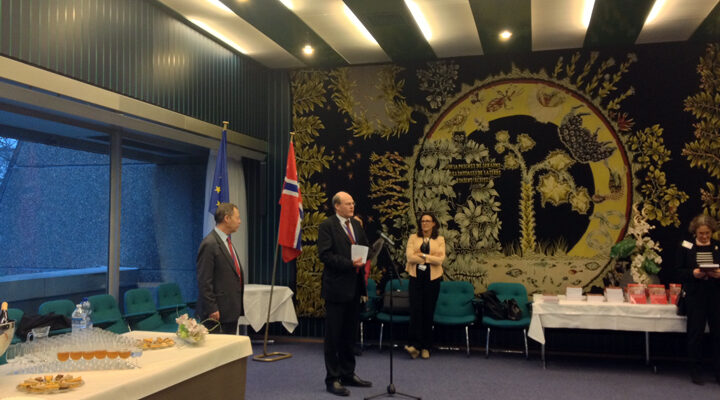
Council of Europe: Shaping education for future societies
STRASBOURG – The Council of Europe’s (CoE) role in higher education is a prominent one. Based on firm values, such as democracy, human rights and rule of law, this European institution has a unique perspective to offer, by strongly advocating the multiple purposes of education.
“Social and cultural diversity will grow, just like the need for critical thinking or political literacy. Thus, it is important to build a foundation for the responsible creators of today and tomorrow, as citizens and not only consumers. We risk waking up in an Orwellian world if we withdraw public support for education and narrow its purpose to being mere instrumental,” Karina Ufert, Chairperson of the European Students’ Union (ESU) says.
Similar thoughts and ideas set the background for Council of Europe’s Steering Committee on Educational Policy and Practice (CDPPE), that took place in Strasbourg from 19 to 21 February. The Committee consists of government officials, responsible for general and higher education, as well as relevant stakeholders, like ESU. It meets each year to provide an input to the core activities of the CoE in the field of education. The Bureau of CDPPE, composed of ten people, meets twice a year. ESU’s representative in the Bureau for 2012-14 is Karina Ufert.
Ensuring quality by equality
Several important discussion points were raised during the meeting, such as on the Recommendation on ensuring quality education, recently approved by the CoE’s Committee of Ministers. The document is targeted mainly at national governments, emphasising that everyone should enjoy equal opportunities so that they can exercise their right to education and benefit from a quality education. The recommendation also suggests specific provisions, such as measures for vulnerable groups to access education.
Developing an European Higher Education Area
During the meeting, the CDPPE members reaffirmed the importance of maintaining and developing the CoE’s strategic role in higher education in the future, including its contribution to further developing the European Higher Education Area. The work of the CoE in higher education is highly valued inside and outside the organisation, as it not only provides expertise to countries undergoing reforms in higher education and has a leading role in the area of recognition of competences and degrees, but also promotes democratic governance of higher education institutions.
As for the upcoming years, the CoE set its priorities to continue working in the area of developing qualification frameworks with respect to multiple purposes of education and fighting against academic corruption. The Bureau of the CDPPE has advised member states on how they could enhance their support for the CoE, for example by setting up an ad hoc group with a broader outreach to the academic community.
“It is a very important opportunity for ESU to be able to contribute to and follow the policy making of the CoE, especially in relation to the quality of and access to higher education in Europe. Its broad membership means that the work of the CoE has direct impact on education all from Portugal in the west to Russia in the east, which is something that no other European institution can do,” Ufert emphasises.

The picture is taken from the presentation of newest Council of Europe publication on “Reimagining democratic societies: A New Era of Personal and Social Responsibility?” The authorship once again reaffirms, that educated, committed citizenry deeply involved in creating and sustaining diverse democratic societies is essential for human progress and advancing the quality of life for all.
— END —
For more information, please contact:
Karina Ufert, ESU’s Chairperson: +32/473.669.892 // karina@esu-online.org or Robert Hlynur Baldursson, ESU’s Communications Manager: +32/473.669.894 // robert@esu-online.org

The European Students’ Union, headquartered in Brussels, is the umbrella organisation of 47 national unions of students from 39 European countries. ESU represents and promotes the educational, social, economical and cultural interests of students at the European level. Through its member unions, ESU represents over 11 million students in Europe. To find out more about ESU, follow us on Twitter @ESUtwt, check out or Facebook page or visit www.esu-online.org. ESU celebrates its 30th anniversary in 2012.
